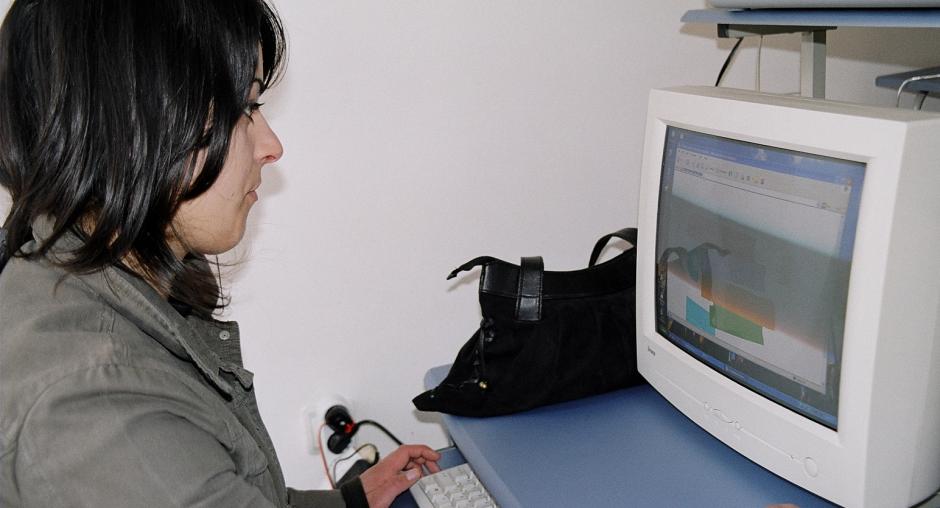Giving local journalists the tools to tell the story in Kosovo
Even today, basic facilities such as computers, Internet access and office space are few and far between. According to Hanns-Christian Klasing, Media Democratization Officer with the OSCE Mission in Kosovo, that creates problems.
"The fact that journalists are often not able to communicate their news efficiently can mean that local affairs sometimes don't enter the public domain and are thus not open for scrutiny," he says.
Until recently, that was the situation facing correspondents in Podujevë/Podujevo, a small town in north-eastern Kosovo. Fadil Halimi is an experienced journalist who works for the Association for Public Intercommunication and Culture (AIPK), an NGO dedicated to media analysis and co-ordinating journalists' work.
Poor working conditions
"We used to have to sit on the floor in coffee shops to write our articles, dictating stories over the phone, sending handwritten faxes, and paying high Internet costs," he recalls.
So in August 2005, the Podujevë/Podujevo journalists turned to the OSCE Mission for help.
They submitted a proposal to the Mission for the creation of a press club that would support their work by providing the essential facilities: office space, phones and computers with Internet access.
Their proposal was accepted and on 20 January this year, the press club was opened by the OSCE Mission, in partnership with the Llap Journalists' Association, which covers the region around Podujevë/Podujevo.
A 45-square metre office equipped with six computers that have Internet access and printers, the same number of phone lines, office furniture and supplies now provides a professional working environment for some 25 journalists.
Better news reporting
As president of the new club, Fadil is pleased with the results: "Now, with our press club, we have relatively good conditions, and we are already getting more effective in producing and sending news."
The increase in the quality and quantity of news sent from Podujevë/Podujevo will, he believes, will enable the people of Kosovo to make better-informed decisions when assessing the work of politicians and government.
The OSCE Mission staff were thinking along the same lines when they made the decision to support the press club.
"We helped to get this project off the ground in order to facilitate the work of journalists and enable them to fulfil their professional duties, especially as opinion-shapers," says Hanns.
Need for self-sustainability
The Mission provided all the equipment for the club and is covering all Internet and office rental costs for an initial six-month period. After that, however, the OSCE's financial support will be phased out and the club will need to become self-sustaining.
The AIPK has developed a business plan that foresees income generation from the introduction of a modest membership fee, the provision of journalism training, and advertising services. According to Fadil, the training activities will focus on educating the younger generation on how to use the Internet to develop their journalistic knowledge and skills.
"The press club is a good example of how we can aid media development by supporting positive initiatives that can become self-sustaining in a very short period of time," adds Hanns.
Plans for the future
The club may be just starting out, but its future looks promising, with another 25 young journalists expected to join by the end of the year.
Fadil also intends to capitalize on the enthusiasm the club has generated by establishing a local newspaper that will encourage youth participation. "The paper will be both a challenge for young people and an opportunity for them to show their talent," he says.
Podujevë/Podujevo press club is not the only such project supported by the OSCE Mission. As part of a series of media development activities, ten similar projects are under way or in the planning stages throughout Kosovo.

